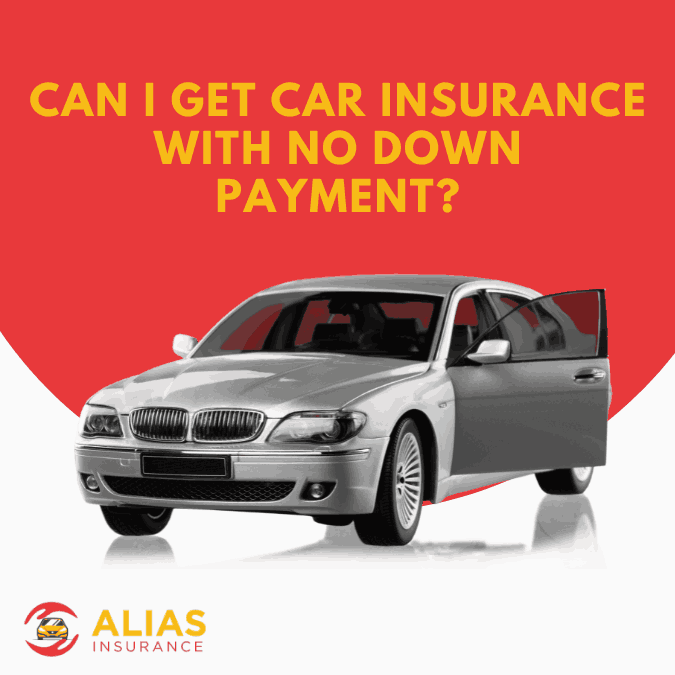
Car insurance is a legal requirement in almost every U.S. state, but for many people, the upfront cost can be a major financial barrier. If you are wondering whether you can get car insurance with no down payment, the short answer is it depends. While most insurers require some form of payment to start a policy, there are ways to reduce or eliminate that initial cost.
In this detailed guide, we will explain how no down payment car insurance works, who qualifies, what to watch out for, and how to get the most affordable policy in 2025 without paying hundreds upfront.
What Is No Down Payment Car Insurance?
No down payment car insurance means getting a policy started without making a large upfront payment. In traditional policies, the first month’s premium or a deposit is required before coverage begins. With no down payment insurance, you might only be required to pay your first month’s premium or even just a small processing fee.
However, it is important to understand that there is no such thing as truly free car insurance. You are still required to pay for coverage, but these options allow you to:
- Spread payments over time
- Avoid large upfront costs
- Get insured with limited cash on hand
How Does It Work?
When you purchase a traditional car insurance policy, most companies ask for:
- First month’s premium
- Or a percentage of the full premium as a deposit
With a no down payment plan, insurers allow you to start coverage with just the first month’s premium and in rare cases, even defer it for a short period. These plans are usually available through:
- Monthly installment options
- State-backed or non-standard providers
- Insurance comparison platforms like Alias Insurance
Who Offers No Down Payment Car Insurance?
Not all insurers provide this option, but some companies offer low or no upfront payment plans based on your profile and state regulations. These include:
- Progressive
- GEICO
- State Farm
- Dairyland
- The General
- Acceptance Insurance
You can use quote comparison platforms like Alias Insurance to compare these providers and find those offering flexible payments.
Who Qualifies for No Down Payment Car Insurance
Eligibility varies depending on the provider and your personal details. Generally, you are more likely to qualify if you:
- Have a clean driving record
- Have good credit or payment history
- Are over 25 years old
- Live in a state that allows installment-based policies
- Choose basic liability coverage
If you are a high-risk driver, have a poor credit score, or require full coverage, you may still qualify but expect to pay slightly more monthly.
States Where No Down Payment Insurance Is More Common
Not all states allow deferred payments or zero-down car insurance, but it is more accessible in:
- California
- Florida
- Texas
- Arizona
- Georgia
- South Carolina
- Nevada
Always check with your local Department of Insurance or an agent to confirm availability.
Pros and Cons of No Down Payment Car Insurance
✅ Advantages
- No large upfront cost
- Coverage starts immediately
- Ideal for low-income drivers or students
- Easier budgeting with monthly payments
❌ Disadvantages
- Higher monthly premiums
- Not available in every state
- May require automatic payments
- Limited options for high-risk drivers
How Much Does It Cost?
Here’s a comparison between traditional and no down payment insurance:
| Policy Type | Upfront Cost | Monthly Payment | Total Cost (6 Months) |
| Traditional Policy | $250 – $500 | $90 – $130 | $790 – $1,280 |
| No Down Payment Policy | $0 – $50 | $100 – $150 | $600 – $900 |
You may end up paying slightly more monthly, but save big initially.
Tips to Qualify and Save
To improve your chances of getting no down payment car insurance, try these tips:
- Maintain a clean driving record
- Improve your credit score
- Choose liability-only coverage
- Bundle with renters or home insurance
- Ask about usage-based discounts
- Use quote comparison sites to shop around
Alternatives to No Down Payment Insurance
If you cannot find a true no-down-payment policy, consider these options:
- $20 Down Car Insurance: Many insurers offer policies with only $20 required upfront.
- Pay-As-You-Go Car Insurance: Pay based on how much you drive, perfect for low-mileage drivers.
- State-Sponsored Plans: Some states offer low-income auto insurance programs with reduced upfront costs.
Is It Legit or a Scam?
Legitimate insurers may advertise “no down payment car insurance,” but be cautious of:
- Unlicensed companies
- Hidden processing fees
- Too-good-to-be-true offers
Always verify the insurer’s license with your state’s Department of Insurance.
FAQs: People Also Ask
Yes, but you may pay higher monthly rates. Shopping around is key.
No. Some states require a full first month’s premium before a policy becomes active
Yes. Regardless of how you pay, you must carry proof of insurance at all times.
Yes, but cancellation fees may apply. Read your contract carefully.
Yes, if you choose it. No down payment plans can be liability-only or full coverage depending on what you buy.
Conclusion: Is No Down Payment Insurance Right for You?
If you are short on cash but need to drive legally, no down payment car insurance can be a great solution. It provides the same protection as traditional policies without the financial burden upfront. Just remember:
- It is not completely free you still pay for coverage
- Compare quotes to get the best monthly rates
- Review terms carefully to avoid unexpected fees
At Alias Insurance, we help you compare top-rated insurers that offer flexible payment plans, including no or low down payment options. Find the right coverage for your situation today and drive with confidence.
